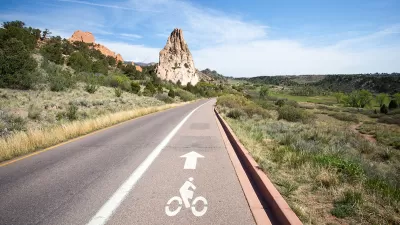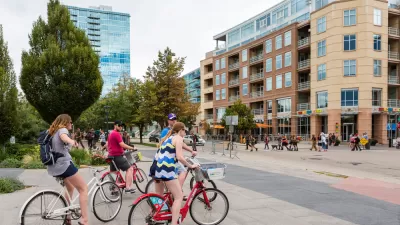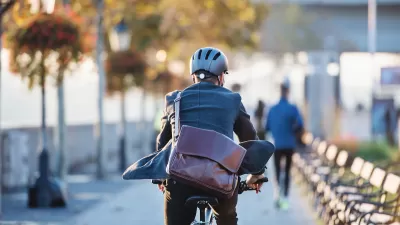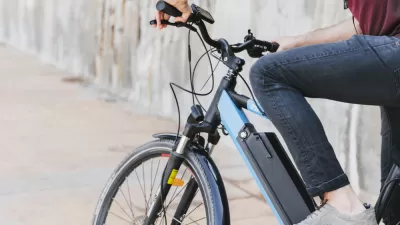A state program is giving free electric bikes to residents in an effort to provide more transportation options and reduce dependence on cars.

The state of Colorado is gearing up to expand on a program that gives free electric bikes to low-income residents. The first phase of the program gave the bikes to low-income essential workers like Shalon Bowens, a sexual health clinic employee in Aurora. The program's goal is to reduce dependence on cars and provide another option for reliable transportation for essential workers during the pandemic. Sam Brasch reports on the program's results and expansion.
The Can Do Colorado eBike Pilot will use a $560,000 grant from the Colorado Energy Office, the City of Denver, and the Regional Air Quality Council to award over 100 e-bikes complete with helmets, locks, and pumps to local residents. Interviews with program participants show that they are replacing car trips and enjoying the opportunity to use a bicycle to get around.
The program came about as a response to changes in transportation options and behavior brought on by the pandemic, says Will Toor, director of the Colorado Energy Office, in the article: "he saw bus routes being cut and essential workers avoiding public transportation." Going forward, Toor thinks e-bikes could play a "much larger role" in getting Colorado residents out of cars and insists equity "is really important" in meeting Colorado's climate goals. Colorado's climate action plan "has received fierce criticism from environmental advocates, who complain the policy outline lacks specifics and didn’t include enough input from marginalized communities bearing the brunt of climate change."
FULL STORY: How Colorado’s Free E-Bike Program Fits Into Its Plan To Slow Climate Change

Planetizen Federal Action Tracker
A weekly monitor of how Trump’s orders and actions are impacting planners and planning in America.

Restaurant Patios Were a Pandemic Win — Why Were They so Hard to Keep?
Social distancing requirements and changes in travel patterns prompted cities to pilot new uses for street and sidewalk space. Then it got complicated.

Map: Where Senate Republicans Want to Sell Your Public Lands
For public land advocates, the Senate Republicans’ proposal to sell millions of acres of public land in the West is “the biggest fight of their careers.”

Maui's Vacation Rental Debate Turns Ugly
Verbal attacks, misinformation campaigns and fistfights plague a high-stakes debate to convert thousands of vacation rentals into long-term housing.

San Francisco Suspends Traffic Calming Amidst Record Deaths
Citing “a challenging fiscal landscape,” the city will cease the program on the heels of 42 traffic deaths, including 24 pedestrians.

California Homeless Arrests, Citations Spike After Ruling
An investigation reveals that anti-homeless actions increased up to 500% after Grants Pass v. Johnson — even in cities claiming no policy change.
Urban Design for Planners 1: Software Tools
This six-course series explores essential urban design concepts using open source software and equips planners with the tools they need to participate fully in the urban design process.
Planning for Universal Design
Learn the tools for implementing Universal Design in planning regulations.
Heyer Gruel & Associates PA
JM Goldson LLC
Custer County Colorado
City of Camden Redevelopment Agency
City of Astoria
Transportation Research & Education Center (TREC) at Portland State University
Camden Redevelopment Agency
City of Claremont
Municipality of Princeton (NJ)





























